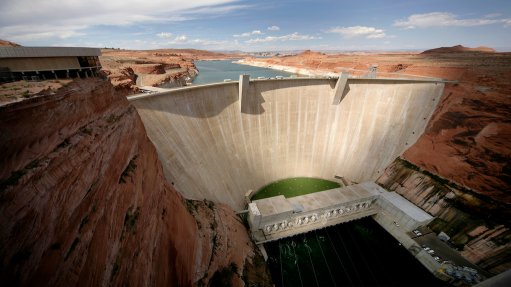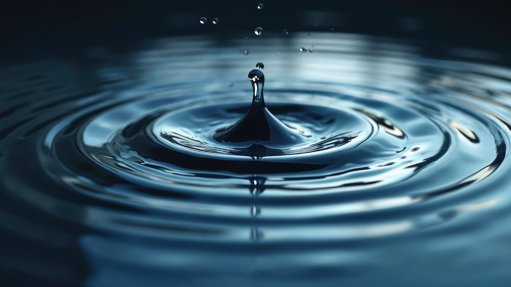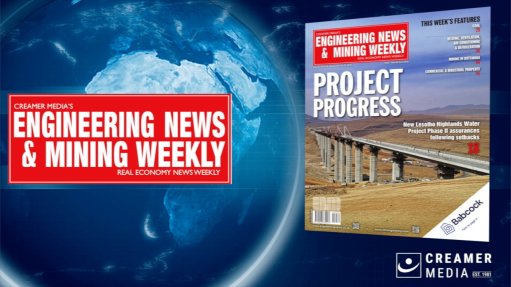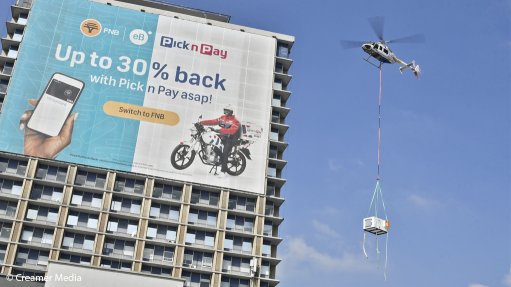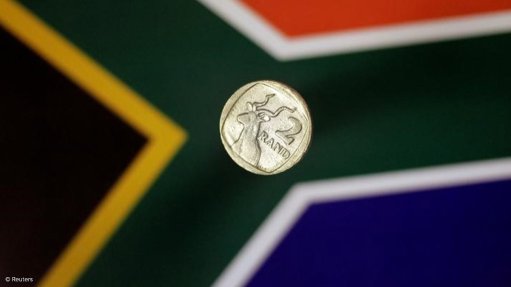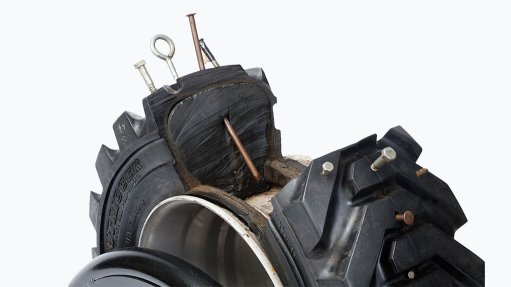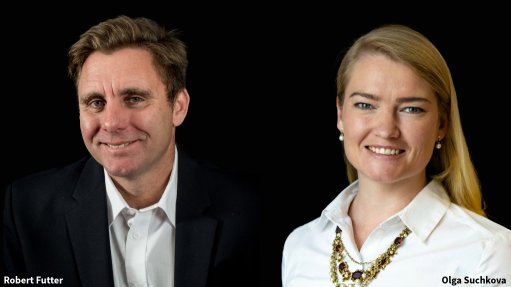Testwork on Kasiya graphite yields encouraging results
ASX-, Aim-, and OTCQX-listed Sovereign Metals has reported encouraging initial results from traditional market downstream testwork conducted by independent consultancy ProGraphite, in Germany.
The tests have confirmed that graphite concentrate from Sovereign’s Kasiya rutile/graphite project, in Malawi, meets the characteristics required for sales into the refractory materials sector.
“These initial test results for traditional graphite applications are very promising. High resistance to oxidation and low levels of sulphur are two key attributes required to produce a premium graphite product for traditional refractory and foundry applications.
“Combining these attributes with the more than 50% large flakes of the Kasiya resource provides Sovereign with multiple marketing options,” Sovereign MD and CEO Frank Eagar said on November 21.
He added that the evaluation of coarse Kasiya concentrate for traditional applications would continue in the coming months, complementing the optimisation work on the fine (less than 180 µm) fraction for anode materials, which had also yielded positive initial results.
“We are very pleased that our testwork programme continues highlighting Kasiya's graphite's premium quality. Keeping in mind that graphite is a coproduct for Kasiya, when combining these excellent results with one of the largest graphite resources globally, industry-low operating costs and lowest industry comparable greenhouse-gas emissions, Kasiya presents significant advantages over its graphite peers as a long-term secure source of supply,” Eager said.
INITIAL TEST RESULTS
Flake graphite used in refractory applications must possess high oxidation resistance, low impurity levels and low loss on ignition at moderate temperatures.
Testing was conducted using thermogravimetric analysis (TGA), a standard method for assessing oxidation resistance. TGA measures weight loss as a sample is heated to increasing temperatures, with specific intervals held to assess weight stability at constant conditions.
The TGA test results on a sample of more than 180 µm graphite concentrate from Kasiya revealed no mass loss below 400 °C, even during a one-hour hold at that temperature. Only minimal weight loss occurred during the ramp-up to 650 °C, with a 6.37% mass loss recorded during a four-hour hold at 650 °C.
This equates to a low oxidation rate of 1.6% an hour. Additionally, Kasiya coarse flake samples exhibited low levels of sulphur impurities, at less than 0.02%, which is advantageous for refractory applications requiring minimal chemical reactivity, the company said.
Sovereign explained that graphite’s oxidation resistance, chemical inertness and thermal conductivity made it an essential component in refractory materials used in high-temperature environments such as furnace linings, kilns, incinerators and nuclear reactors.
Kasiya’s large flake graphite aligns with these industrial needs and additional evaluation of its traditional and expandable applications is ongoing. The company said further results were expected in the coming months to support further offtake agreements.
MARKET DYNAMICS
Sovereign said traditional demand for natural graphite remained tied to its use in steel manufacturing, specifically as a key component in refractory bricks that line blast and electric arc furnaces.
Graphite is also used in linings for ladles and crucibles. Other industrial applications include automotive components such as brake linings, gaskets, and clutch materials, as well as lubricants, fire retardants and insulation products.
Sovereign said Kasiya’s graphite mineral reserve distribution included a mix of flake sizes, providing ample flexibility. Larger flakes were ideal for refractory applications, while smaller flakes were suited to battery anode materials. Very fine flakes were primarily used in lubricants. This diverse distribution enhanced the project’s commercial options, the company said.
On November 16, financial publication Nikkei Asia reported that China planned to introduce tighter export restrictions on key "dual-use" technologies and items, including graphite and titanium alloys, beginning December.
China’s Ministry of Commerce outlined these controls for items with civilian and military applications. This follows the country’s previous export restrictions on antimony in August.
On October 20, 2023, news outlet Reuters reported that effective December 1, 2023, China would require export permits for certain graphite products, including natural graphite and those critical to electric vehicle production.
China dominates global graphite production, accounting for 75% of the world's flake graphite and 96% of spherical graphite used in battery anodes. These restrictions highlight the geopolitical importance of Kasiya, which aims to establish itself as a key producer of high-grade titanium feedstock and natural flake graphite.
KASIYA GRAPHITE IN REFRACTORY MATERIALS
Sovereign pointed out that graphite’s role in refractory materials included increasing thermal conductivity, decreasing thermal gradients to reduce expansion, enhancing thermal shock resistance, and minimising thermal expansion.
It also repels molten slag, reduces wettability by molten metals, and extends the working life of refractory products.
The company said Kasiya’s large flake graphite, with its high resistance to oxidation and low impurity levels, met the stringent requirements for these applications.
Sovereign’s continued testwork and optimisation programme aim to position Kasiya as a reliable and competitive source of high-quality graphite, providing multiple revenue streams from its diverse applications in both traditional and emerging markets.
Comments
Press Office
Announcements
What's On
Subscribe to improve your user experience...
Option 1 (equivalent of R125 a month):
Receive a weekly copy of Creamer Media's Engineering News & Mining Weekly magazine
(print copy for those in South Africa and e-magazine for those outside of South Africa)
Receive daily email newsletters
Access to full search results
Access archive of magazine back copies
Access to Projects in Progress
Access to ONE Research Report of your choice in PDF format
Option 2 (equivalent of R375 a month):
All benefits from Option 1
PLUS
Access to Creamer Media's Research Channel Africa for ALL Research Reports, in PDF format, on various industrial and mining sectors
including Electricity; Water; Energy Transition; Hydrogen; Roads, Rail and Ports; Coal; Gold; Platinum; Battery Metals; etc.
Already a subscriber?
Forgotten your password?
Receive weekly copy of Creamer Media's Engineering News & Mining Weekly magazine (print copy for those in South Africa and e-magazine for those outside of South Africa)
➕
Recieve daily email newsletters
➕
Access to full search results
➕
Access archive of magazine back copies
➕
Access to Projects in Progress
➕
Access to ONE Research Report of your choice in PDF format
RESEARCH CHANNEL AFRICA
R4500 (equivalent of R375 a month)
SUBSCRIBEAll benefits from Option 1
➕
Access to Creamer Media's Research Channel Africa for ALL Research Reports on various industrial and mining sectors, in PDF format, including on:
Electricity
➕
Water
➕
Energy Transition
➕
Hydrogen
➕
Roads, Rail and Ports
➕
Coal
➕
Gold
➕
Platinum
➕
Battery Metals
➕
etc.
Receive all benefits from Option 1 or Option 2 delivered to numerous people at your company
➕
Multiple User names and Passwords for simultaneous log-ins
➕
Intranet integration access to all in your organisation





